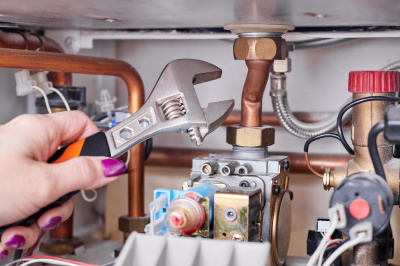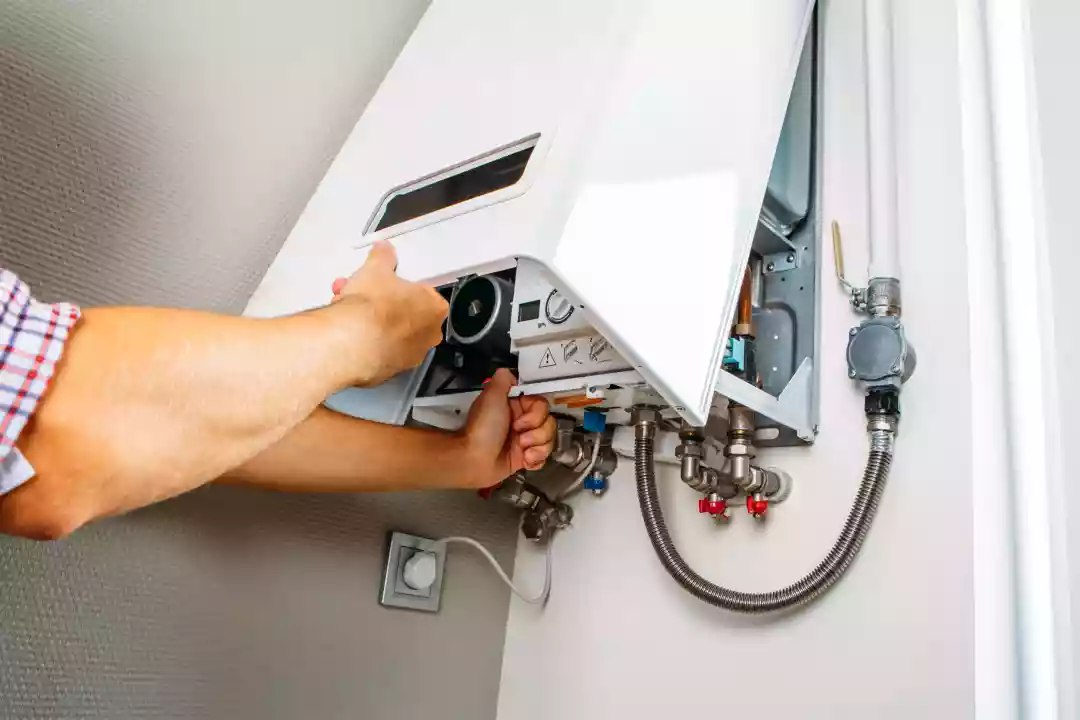What is a Combination Boiler and How Do They Work?
A combination boiler is a type of boiler which provides both central heating and hot water. This makes them ideal for flats and homes with one bathroom, as they do not require a separate hot water cylinder. The boiler heats up the water inside the unit and then pumps it through the radiators and out of taps whenever it is needed. This heat-on-demand system is known as a ‘combination’ because it combines the two functions of central heating and hot water into one appliance.
The combination boiler is most commonly found in modern homes, as it is the most efficient type of boiler on the market. It is relatively compact, meaning it can fit inside standard kitchen cabinets or cupboards. As it has no tank, it takes up less space than other types of boilers.
What are Heat-Only Boilers?
Heat-only boilers (also known as regular boilers) are a traditional type of boiler which are most suitable for larger homes with multiple bathrooms. Unlike combination boilers, heat-only boilers require both a hot water cylinder and a cold water tank (usually located in the loft). This configuration allows the boiler to heat up the water inside the cylinder and then pump the heated water through the radiators. Heat-only boilers can be powered by gas, oil, or electricity and can supply more than one outlet for hot water at the same time, making them better suited to homes with high water demand.
The main disadvantage of a heat-only boiler is that they are more complicated to install and takes up more room than a combination boiler. Therefore, they may not be suitable for smaller homes or flats.

Need assistance finding boiler replacement near you?
Get a QuoteHow Does a System Boiler Work?
System boilers are very similar to heat-only boilers, with the main difference being that they include an integrated hot water cylinder. This means all of the components necessary for heating and hot water are housed within one unit, which is located in a cupboard upstairs or downstairs. As a result, system boilers are a great solution for homes where space is limited.
Unlike combination boilers, system boilers do not require additional cold water storage tanks in the loft, making them slightly more efficient and cost-effective to run. However, they are still unable to provide instant hot water, meaning there may be a slight delay when you turn on the tap.
How Do I Choose the Right Type of Boiler for My Home?
Choosing the right type of boiler depends on a few factors, such as the size of the building and the number of bathrooms. Combination boilers are the most popular choice for smaller homes and flats, as they do not require a separate water cylinder and can provide instant hot water. System and heat-only boilers are better suited to larger properties with multiple bathrooms, as they have a greater capacity for hot water and energy efficiency.
It is also important to consider the heating requirements of the property and the climate. In milder climates, condensing boilers can be more economical, whilst non-condensing models may be better suited to colder weather.
Internal vs External Boilers
When it comes to selecting a new boiler, another important decision is whether to choose an internal or external model. Internal boilers are usually fitted inside a cupboard or cupola, whereas external boilers are installed outdoors.
Internal boilers are the most popular choice, as they are easier to install and can be hidden away. They also help to reduce noise levels outside the home. However, they take up valuable space inside the home and can be challenging to access in case of a breakdown.
External boilers are typically larger in size, but they can be installed quickly and affordably. As they are located outside the home, they are easier to access in case of a problem. However, external boilers may make more noise than internal models due to their proximity to the home and can be more vulnerable to weather damage.
Ultimately, the type of boiler you choose depends on your individual needs and preferences. With the right advice, you can make an informed decision about which type of boiler will be the best fit for your home or business.
In this article:

